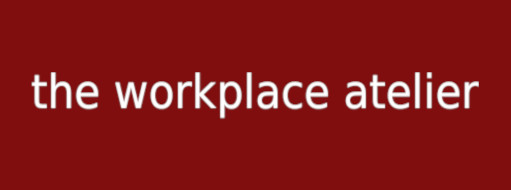My name is Neha Chatwani and I am an organizational psychologist.
The workplace atelier is a space for collaboration and learning partnerships in change management bricolage.
What is change management bricolage?
The word bricolage implies a construction or a put-together sculpture of ideas that are achieved by using whatever comes to hand. In this way change management bricolage is about resource mobilization. Change management bricolage in teams is about fully recognizing the knowledge, skill and experiences each individual brings to the organization. People go to work as whole human beings and are often reduced to just the skills and experience that they bring to their current role. Normally they know and are able to do much more. Engaging employees in change and tapping into their wealth of knowledge through inclusive and distributed leadership is the lever to managing disruptive change and deploying the talent to where it is needed.
In short change management bricolage is about how we take what we already have and redesign it into something we need. It is an expression of agility: knowledge-based and timely. At the heart of change management bricolage is knowledge.
- First we need to be aware of what we know.
- Then we need to value what we know as an asset for change and;
- Finally, we need to leverage this collective knowledge to shape change and adapt to disruptive circumstances; or co-design a sustainable solution.
Change Management Bricolage is not a one-off random activity. It is purposeful, focused and disciplined. Collaboration and learning are key. Bricolage builds on an idea of visioning possibilities and creating specific sustainable solutions not one-size-fits-all dogma. It is an attitude for innovation.
One area for effective change management bricolage is developing Agile HR.
When HR professionals say that they seek to add value to business, it almost sounds as if they are not really part of the business. Agile HR is about the customer experience at the heart of business. The customer at the heart of any business is the employee.
Agile HR focuses on enriching the employee experience by appreciating the employees’ ability to provide relevant input. Agile HR is about co-designing HR solutions by engaging with employees. Rather than piloting projects that are derived from HR expertise and best practice and are quasi tweaked until they somehow fit, Agile HR seeks to test ideas and learn from feedback in on-going dialogue with employees and management. This continuously learning loop is iterative and allows organizations to create their own unique solutions.
Agile HR demands a high-level of humbleness and courage to let go of ideas that are not working as well as an openness to test HR expert assumptions as well as empathy in engaging with employees and managers. This makes it different from an expert-driven silo black box. It is an entity that (pro)actively seeks to engage and collaborates to enhances overall business performance.
In a nutshell Agile HR is not about what you do but how you do it. It is about a mind set and the hardwiring of how HR thinks and acts to collaborate and learn.
The services at the workplace atelier are based on organizational psychology insights which is about the application of psychological theories to humans in workplace settings. Organizational psychology includes a wide range of issues including conflict resolution, motivation and engagement, selection and assessment, well-being, learning and development, change and leadership.
Organizational psychologists typically embody multiple roles depending on the type of learning intervention that is needed to diagnose and unravel specific workplace situations. They can act as coaches, facilitators or moderators, agents of provocation and sparring partners with the intention to challenge thinking and the assumptions. Their goal to support you to achieve your optimal performance.
Organizational psychologists can also be advisors in shaping preventive measures regarding psychological safety or championing diversity and inclusion. They can also be consulted by individuals in matters related to career design or the creation of teams for example in start-ups and act as a sounding board on issues of leadership.
The services at the workplace atelier are designed to “think, feel, take action to add meaning and value”.
